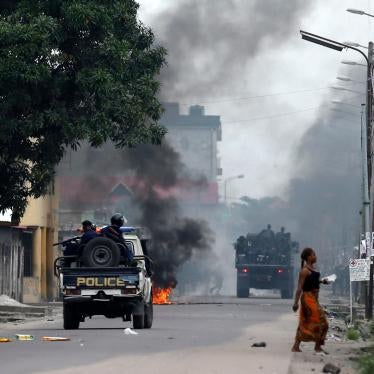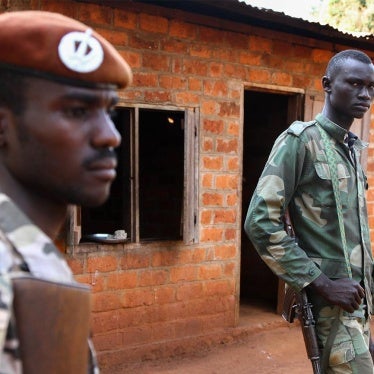Dear Ambassador,
I’m writing to you ahead of this week’s Security Council discussion on South Sudan. We hope you and the rest of the council are now ready to take the long-overdue step of imposing an arms embargo on South Sudan.
As you know, Security Council resolution 2304 stipulates clearly that if the Secretary-General reports any obstructions to UNMISS in the performance of its mandate, "within five days of receipt of such report (the Council) shall consider appropriate measures including those measures described in the draft resolution in Annex." An arms embargo is the first measure outlined in the Annex to resolution 2304.
The Secretary-General’s report that comes less than a month after the adoption of the resolution already lists near daily obstructions of UNMISS by South Sudanese government and military officials that prevented it from carrying out its mandate. This is no surprise; the Secretary-General’s report merely confirms what everyone on the ground has known and seen for some time now – that the government has been doing everything it can to make UNMISS toothless and incapable of carrying out its mandate. It is time to act now.
Failure by the Security Council to follow through on its threats in the face of continuous abuses would send a message to the leadership of South Sudan - and all others responsible for massive human rights violations - that there is nothing to fear when you ignore its resolutions. This undermines UN credibility worldwide.
Critically and most importantly, the measure is urgently needed because it can save civilians’ lives. Both government and opposition forces have repeatedly attacked civilians, often along ethnic lines, and always with impunity. An arms embargo is a crucial step toward ending abuses against civilians.
We have documented how in 2015, government forces used amphibious vehicles to attack civilians hiding in the marshes of Unity State. And since the beginning of 2016, despite the peace agreement, we have documented new abuses by government soldiers during operations in the Equatorias and Bahr el-Ghazal. During the July violence in Juba, government forces again used heavy weapons to attack civilians both indiscriminately and deliberately.
As the latest report by the Panel of Experts shows, the government has been continuing to import weapons and ammunition in recent months. In the South Sudanese context, the use of these arms, which include at least two fighter jets, will inevitably lead to the death and injury of even more civilians. The Secretary-General, the Under Secretary-General for Peacekeeping Operations and the U.N. Panel of Experts have repeatedly urged the Council to take steps to end the flow of weapons, ammunition and military hardware and services to South Sudan.
The September 4, 2016 joint communique issued by the Security Council and the Transitional Government of National Unity of South Sudan states that the government promises to take steps to improve aid access and remove impediments to UNMISS by the end of September. We hope that all parties will keep their promises. But this new deadline should not be used as a pretext for waiting yet another month to impose an arms embargo that should have been put in place a long time ago.
We urge you to do the right thing and start the process this week of imposing an arms embargo on South Sudan. As always, we stand ready to assist you with advice and background on this conflict, which has gone on far too long and claimed far too many lives.
Best regards,
Louis Charbonneau
United Nations Director







